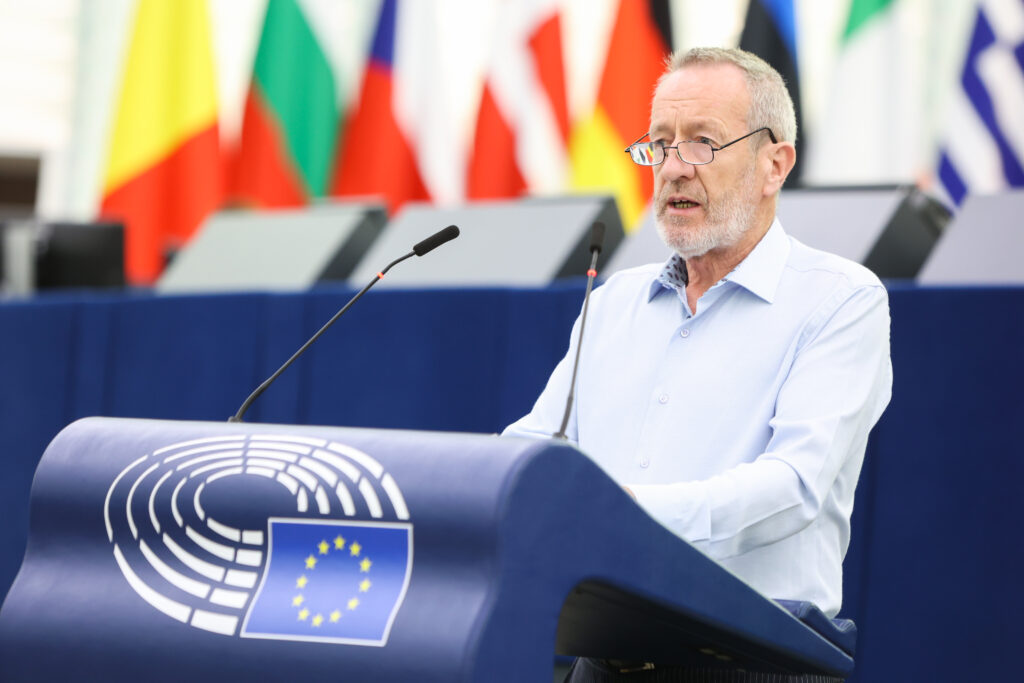Published: Mon, 23 October 2023
Share this

The European Union has set ambitious targets to combat climate change, introducing a raft of legislation to achieve a 55% reduction in greenhouse gas emissions by 2030, known collectively as the Fit for 55 Package.
This package aims to drive an ambitious systemic change in how we produce, consume and store energy. It is clear that addressing sustainability challenges and climate change will be central to the future growth of our economy, as the cost of inaction now will be far exceeded by the costs involved with adaptation, never mind the social and political instability this would create.
To achieve these goals, we need a transformation of the energy sector, an energy efficient building stock, more circular production and consumption as well as decarbonizing our industries.
As a Member of the European Parliament, I have witnessed the industry’s response to this call for action over the past decade, as we’ve seen a remarkable scale-up of what we now call “net-zero technologies.” One of the key steps in this journey is the Net Zero Industry Act (NZIA), a pivotal component of the EU’s Green Deal Industrial Plan.
Ireland, with its abundant wind resources and strategic geographical location, holds significant potential when it comes to renewable energy generation, and the subsequent downstream industries that come with generation hubs. The International Energy Agency (IEA) estimates that the global market for net-zero industry technologies will reach an annual worth of around €600 billion by 2030.
Major players like the United States and China are already making significant strides in building their net-zero technology manufacturing capabilities. For Europe, capturing a share of this growing market is imperative, and the NZIA plays a crucial role in achieving this.
The recent energy crisis stemming from Russia’s war in Ukraine served as a stark reminder of the risks associated with depending on third countries for our critical energy needs. As we transition from fossil fuels to low-carbon energy sources, it is vital that we ensure the technologies used for this transition, as well as their components, can be sourced within the EU or from reliable partners.
As the lead negotiator in the trade committee for the largest political group, EPP, I have called for strong international cooperation and the pursuit of new trade partnerships with like-minded nations. We must diversify our supply chains and reduce strategic dependencies to safeguard our energy security.
Certain technologies, such as solar PV panels, wind turbines, and batteries, are essential for achieving net-zero emissions. It’s risky to be overly dependent on a single country for their supply. The NZIA, by promoting international collaboration and diversification of supply chains, helps mitigate this risk.
The NZIA brings several positive provisions to support the rollout of net-zero projects. These provisions mirror many initiatives that I have been advocating for in the European Parliament. They encompass planning and permitting, skills development, and creating a one-stop shop for accessible information, making it easier for businesses and investors to navigate the transition to a greener industry.
One key aspect of the Act is its focus on public procurement and auctions. Public authorities are now required to consider sustainability and resilience criteria for net-zero technologies. This is a crucial tool to enhance the diversification of supply for these technologies. It also offers private consumers, including small and medium-sized enterprises (SMEs) and entrepreneurs, the opportunity to participate actively in the transition.
In the International Trade Committee, I emphasized the need for Europe not to lag behind in this global transition. We must work proactively to avoid future scenarios where we are dependent on third countries for critical resources. The NZIA addresses this concern by facilitating collaboration with like-minded partners.
However, there are challenges that need to be addressed. First, the full potential of the Fund established by the Act can only be realized when a true European Capital Markets Union is in place. Investors require certainty and favourable policies to invest, and the EU must overcome the obstacles that currently hinder private capital’s contribution to green initiatives.
Carbon capture and storage (CCS) is pivotal to our transition to net-zero emissions. Ireland, with its potential storage sites like the Kinsale Head Gas Field, holds promise in this regard. CCS, along with bioenergy, needs to be integral parts of the NZIA, as recognized by the IEA. In my work in the Industry and Energy Committee, I have called on the Commission to adopt a strategy for carbon capture and storage. This now appears to be coming soon, with Wopke Hoekstra, the new Dutch Commissioner for Climate Action, taking the lead.
The Net Zero Industry Act is a significant step in Europe’s commitment to reducing carbon emissions and achieving carbon neutrality. It fosters innovation, creates jobs, and ensures energy security. By supporting international cooperation, diversifying supply chains, and providing a regulatory framework for net-zero technologies, the NZIA is a crucial instrument in our efforts to address climate change and build a more sustainable future.
However, it’s imperative that we address remaining issues and work collectively to turn the Act’s potential into tangible results. With the right enabling conditions and industry engagement, the NZIA can set us on the path to a greener, more sustainable, and secure future.